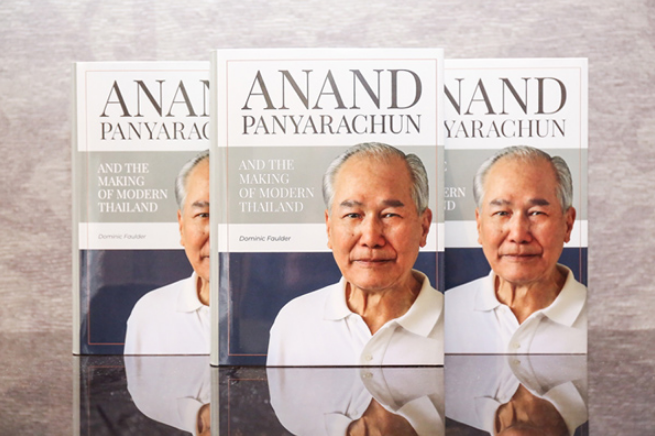
Anand Panyarachun and the making of modern Thailand
With Thailand still struggling to return to electoral democracy after a military coup, it is worth looking at the nation’s unfortunate wealth of experience in such endeavours. Of particular note is the role played by Anand Panyarachun, the leader of what many count as the most successful post-coup government in Thai history. Anand not only led honest and effective governments, but twice returned the country to elections. From the point of the generals who originally chose him, however, Anand turned out to be a disaster for military political power. Anand Panyarachun and the Making of Modern Thailand by long-time Bangkok journalist Dominic Faulder not only sheds new light on Anand’s post-coup role, but provides much else of interest.
This biography of Anand, the first in English, is the outcome of six years of work by Faulder. It covers Anand’s life and work as diplomat, Prime Minister, company chairman, philanthropist and contributor to national and international reform. As the subtitle of the book indicates, Anand’s career also provides a useful lens through which to view a half century of Thai history. The book includes interviews with many of the key actors in the events that have made modern Thailand. As Faulder notes, “The benefit of writing a book about Anand is that many people are willing to open their doors to talk about him; this kind of access is rare in Thailand.” Sadly, at least eight of those interviewed have since passed away – highlighting the timeliness of Faulder’s work.
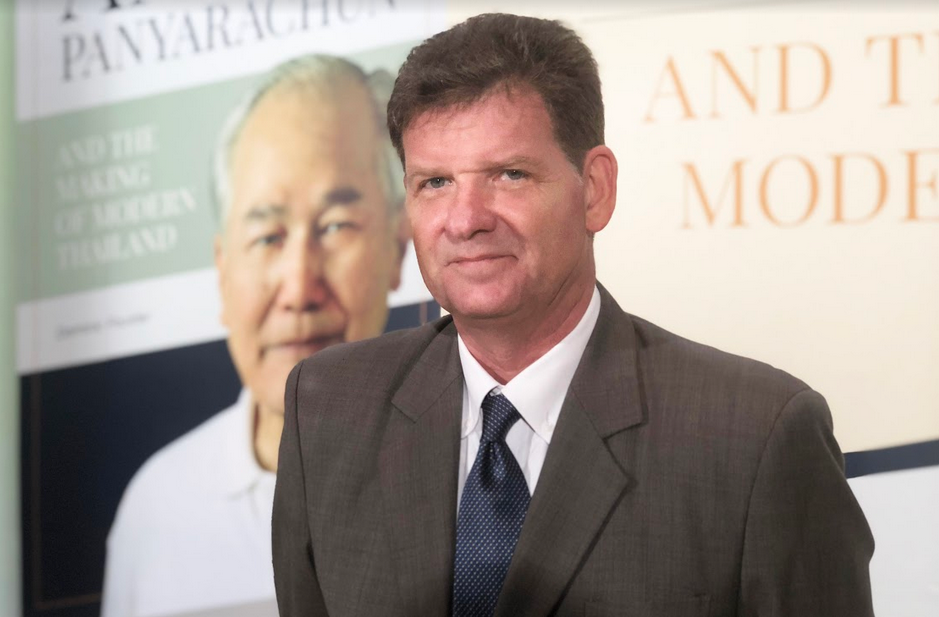
Before going further, I should acknowledge that I do not come to this subject without my own experiences and biases. I covered Anand’s surprising nomination as Prime Minister in 1991 as Bangkok bureau chief for United Press International. A few years later I was part of the group that persuaded Anand to chair the non-profit Kenan Institute Asia. I served for a decade as executive director and later president of the Institute under Anand’s leadership. I later worked as part of a team of writers supervised by Anand that produced a book on King Bhumibol Adulyadej. I have been friends with Dominic Faulder for many years and more recently became friends with editor Nick Grossman.
Although I covered parts of Anand’s career and worked closely with him, Faulder’s book gave me new information and greater insight into Anand’s life and character. Faulder has given an accurate picture of a man of decisive rationality and integrity. He set high standards he set for himself and those working with him. As the book shows, Anand is a man of great self-confidence and quick decisions. More often than not, even in confusing circumstances, his judgment has been sound. Anand worked in a wide variety of roles in his career. He brought value and concern for the public good to each of them.
Elite has become a term of disparagement, but in many positive ways, Anand was legitimately elite. He did not suffer fools easily and was often straightforward in exposing their foolishness. This is not the easy way to popularity. Although he certainly had enemies, Anand gained public support because most people could see his blunt assessments were intended to serve the public good. They also saw that he recognised the advantages his privileged upbringing had given him and sought to understand and empathise with the lives of ordinary Thais. He was elite without being elitist.
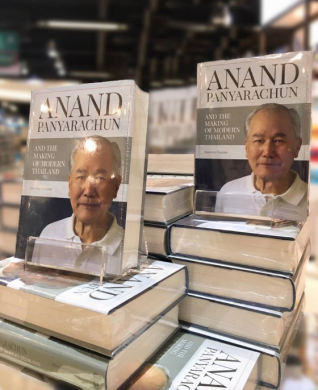
Faulder gives a good account of Anand’s early life as a student in England and shows how his personal bonds with fellow overseas Thai students proved valuable in later years as Anand and his friends rose to positions of greater power. The background on Anand’s family and the particular importance of his father
Faulder gives a brief account of Anand’s courtship and marriage to Mom Ratchawong Sodsee Chakrabandh, a fellow student in England and a descendant of King Mongkut. The book, however, says little about Anand’s long marriage, despite Faulder’s extensive access to Anand and his two daughters. Similarly, the book fails to shed much light on Anand’s relationship with King Bhumibol Adulyadej. Faulder notes that Anand had numerous meetings with the King, especially during Anand’s two terms as Prime Minister. He quotes others about the relationship. One friend described Anand as a Bhumibolist rather than a royalist. However, there is little on this topic directly from Anand. As Faulder states in his author’s note, Anand made it clear that matters discussed privately with the King were off limits for the book. This is understandable, but unfortunate, as Anand’s views of the King could have contributed to a better understanding of a monarch whose long reign has been obscured by unfounded rumours, excessive adulation and excessive blame. Both the King and Anand had minds shaped by extensive early education in Europe that had to deal with the complexities of traditional Thai society. Their discussions of Thailand’s problems must have been interesting.
There is also little account of Anand’s religious thinking. Faulder notes his opposition to making Buddhism the state religion during the development of the 1997 constitution and quotes him as saying “normally I don’t give money to temples.” Since Buddhism is so important in the thinking of many Thais, it would have been useful to learn more.
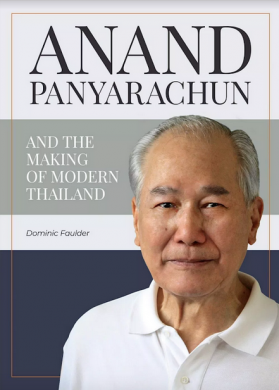
Many of Anand’s views in the book were familiar from my chats with him at board meetings, dinners or social events, but some were new to me. For someone often described as part of the traditional elite, Anand’s views are rather untraditional. Faulder quotes him as rejecting the idea of “Thainess” and lamenting that so many Thais misunderstand their own history – taking pride in the glory of a unitary state that never existed. The book shows he rejected the common prejudice of many in Bangkok against the Lao ethnic minority, saying he saw them as intelligent and hardworking. He is quoted as saying he appreciated the writings of Thai “radical thinkers,” including Jit Phumisak, Seni Sawaphong, Khamsing Srinawk and Seksan Prasertkul. He decries the abuses of Thailand’s Lese Majeste law and recommends its reform. As head of a commission on the troubles in Thailand’s far south, he opposed the views of most military and government leaders, recommending more local autonomy, greater respect for Islam and a bigger role for the Malay language as measures to reduce the violence there. At the same time he rejects the idea of a “network monarchy” popular among foreign academics. Faulder says Anand sees this network monarchy as “a convoluted, somewhat obsessive conspiracy theory.”
At 608 pages, Anand Panyarachun and the making of modern Thailand is comprehensive and detailed. It is an important step in filling the marked lack of serious English language biographies of leading Thais, but it does more.
Using the life of a significant Thai leader, the book gives us insider accounts of many of the critical developments in recent Thai history. Anand’s career extended to diplomacy, government leadership, private enterprise, reform commissions and charitable work making him an important player in that history. But because the account is tied to Anand, it says little about the impact of change on the people of the countryside, the recurring radical movements, the rise and fall of the Thai communist party and much else. However, it does give us a better understanding of whatever events Anand touched and they were many. Anand and many others contributed hundreds of hours of interviews to the book. This wealth of material provides an understanding of Thai diplomacy during the cold war and Thai efforts to adjust to the new reality after the wars in Vietnam, Laos and Cambodia. In particular there is an inside account of the fiasco of the Mayaguez incident and the contentious departure of US troops from the Thai perspective. The book describes Anand’s role in the Thai effort to readjust its relations with the communist governments in Vietnam and China. As a result, he suffered the wrath of the conservative Thai military in the process, seemingly bringing his government career to a sudden end.
The highlight of the book, however, is a detailed account of Anand’s two terms as Prime Minister. It describes his surprising appointment as Prime Minister after a military coup in 1991 and the confusing process that led to a second term after a public uprising against an unelected military leader the following year. Faulder sheds light on the relationship between Anand and army commander General Suchinda who appointed him only to see him move against military interests and sideline key generals.
He details the Anand government’s considerable achievements during those two brief terms. Quite correctly, a share of the credit is given to the ministers that Anand brought into his cabinet. With Anand’s support, those ministers advanced the rights of women, espoused much needed educational reform, improved the telecommunications infrastructure and made Thailand a model for enlightened action against AIDS, saving many thousands of lives.
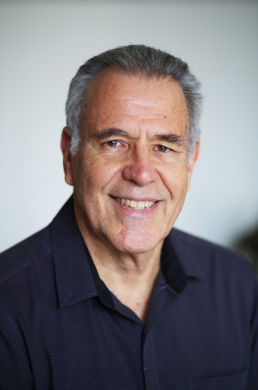
There is a good discussion of Anand’s work to help write Thailand’s 1997 constitution – one that many feels



